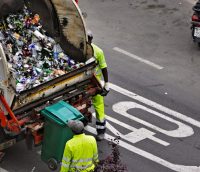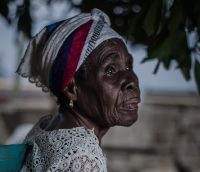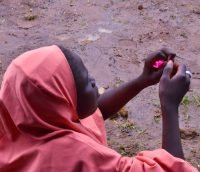| Practical session during the ‘Data Made Simple’ Training-of-Trainers Capacity Building Session for SWAG Initiative |
One of the global goals that Shades of Us has adopted is Goal 17: Partnership for the Goals.
With this in mind, we worked with Stand With A Girl Initiative (SWAG Initiative) on two of their projects: the Girl Advocate for Gender Equality (GAGE) and the ‘Data Made Simple for Adolescent and Youth Sexual and Reproductive Health and Rights’ projects. The former, implemented by Stand With A Girl Initiative and Strong Enough Girls’ Empowerment Initiative (SEGEI), aims to equip adolescent girls with information, skills and resources to be advocates for gender equality. And with the Data Made Simple project, well…the name explains its goal. The project is funded by the United States Agency for International Development (USAID) and supported by the Johns Hopkins University Center for Communication Programs through its Knowledge SUCCESS (Strengthening Use, Capacity, Collaboration, Exchange, Synthesis, and Sharing) program.
Through the GAGE project, we built the capacity of representatives of media organizations on ‘Gender Equality Reportage’ on July 22, 2021. The media is key to formulating (or reinforcing) many gender norms and the vision with this capacity building session was to take gender considerations into account, compensate for gender-based inequalities, and catalyze gender transformative approaches or strategies that can be applied in program design, production and transmission, and monitoring and evaluation. For us, this opportunity was an avenue to work on another global goal that is key to our work at Shades of Us: Gender Equality. Areas of focus during the session included: gender definitions and misconceptions; gender norms and social expectations; equality versus equity; gender bias in media reportage; gender-based violence; and concepts for addressing gender inequalities.
 |
| Virtual session on ‘Gender Equality Reportage’ for the GAGE Project |
One interesting question that came up during this session was why gender equality conversations almost always focused on issues affecting women and girls. We explained that traditionally, women have been the most disenfranchised in our society and the media was one of many reasons why. To buttress this point, we asked if, when seeking ‘experts’ on topical issues in politics, the economy, national development or even sports, they would pick women. Many of these personnel began to see their bias in defaulting to men for these conversations. The idea of women as ‘experts’ rarely came to mind…except when the conversation was a “women’s topic”.
We also looked at the framing of headlines and how they can serve to blame victims rather than perpetrators of sexual and gender-based violence. This session had such passionate response and you could tell it was an issue that bugged many of the personnel who attended the session.
For the ‘Data Made Simple’ capacity building session, the focus was on improving the capacities of members of the SWAG Initiative team in what we call a training-of-trainers session. This happened on August 4, 2021, at the SWAG Initiative office in Abuja. Our presentation was on ‘Data Visualization for Storytelling’ and participants learned about data formats, qualities of data design, font styles, color schemes, branding guidelines and the use of tools like Canva and Giphy for the creation of simple data products.
 |
| ‘Data Made Simple’ Training-of-Trainers Capacity Building Session for SWAG Initiative |
As a follow on to these trainings, SWAG will monitor the media organizations and their reportage, noting if they follow through on their commitments to improve their coverage of issues affecting women and girls. This would – hopefully – be easy to track as these organizations promised to use the Girl Advocate for Gender Equality hashtag – #GAGE2021 – in their reports, news, programs and more. On our part, we will be looking out for, and sharing these news stories with the hashtag.
With the ‘Data Made Simple’ project, Shades of Us is committed to designing some simple data products in the coming weeks for SWAG Initiative’s interaction with 5 State governments on some of the issues affecting adolescents and young people in the States.
We look forward to how the media and State governments can improve the lives of young people using these information that we have shared. And as always, we are open to partnering with other organizations that work in the areas of development that are tied directly to our work.







